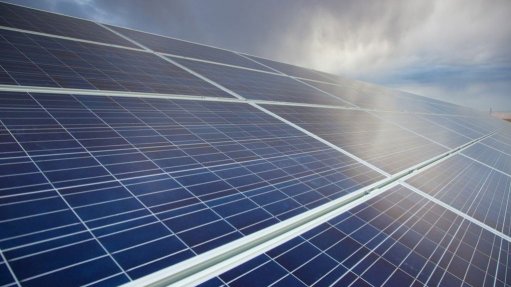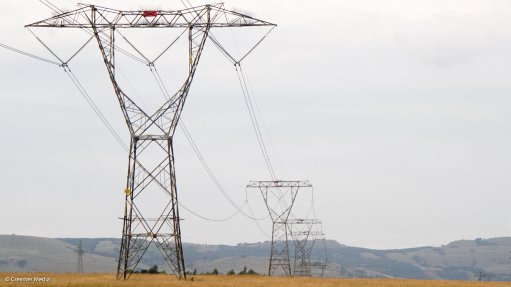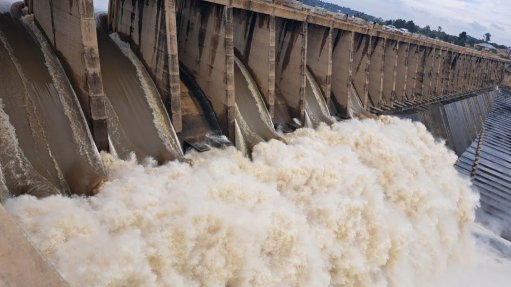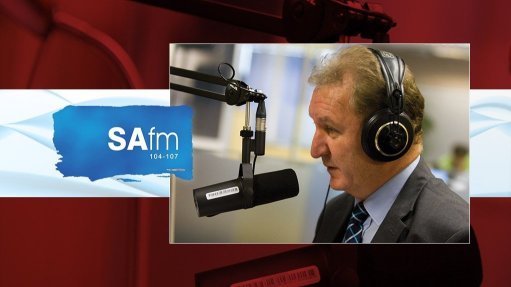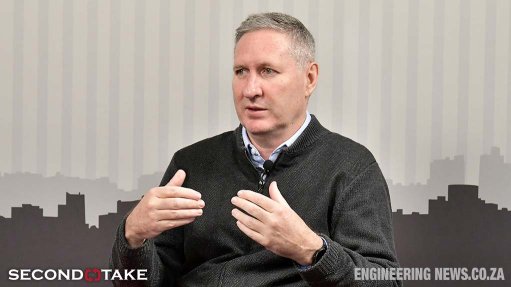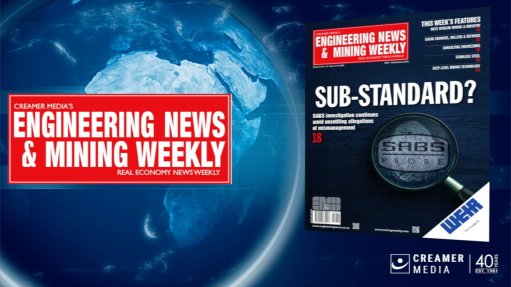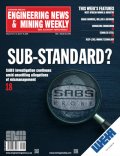Climate hazards will slash 7% off corporate earnings yearly by 2035, researchers warn
Businesses must act now to address growing climate risks or face steep financial losses, the World Economic Forum (WEF) stresses in two new reports.
Companies that delay could see up to 7% of yearly earnings wiped out by 2035 – an impact akin to Covid-19-level disruptions every two years, the WEF states.
The reports – ‘Business on the Edge: Building Industry Resilience to Climate Hazards’, produced with support from Accenture, and ‘The Cost of Inaction: A CEO Guide to Navigating Climate Risk", produced with support from Boston Consulting Group (BCG) – provide a roadmap for companies to navigate climate risks and unlock long-term value through decarbonisation, safeguarding nature, adaptation and building resilience.
Extreme heat and other climate hazards are expected to cause $560-billion to $610-billion in yearly fixed asset losses for listed companies by 2035, with telecommunications, utilities and energy companies most vulnerable.
Companies in energy-intensive sectors that fail to decarbonise face mounting transition risks as global climate regulations tighten, with carbon pricing alone potentially slashing up to 50% of earnings by 2030, warns the WEF.
These risks, combined with cascading impacts on supply chains and communities, underscore the critical need for resilience strategies.
In contrast, businesses that invest in adaptation, resilience and decarbonisation are already realising tangible returns.
Research from the Alliance of CEO Climate Leaders, which includes 131 global CEOs representing companies that employ 12-million people, shows that every dollar invested in climate adaptation and resilience can generate up to $19 in avoided losses, based on data from the Carbon Disclosure Project, which helps companies and public authorities disclose their environmental impact. It offers a blueprint for CEOs and their companies to navigate the risks and seize the opportunities with evidence that most industries could abate over 50% of their emissions cost economically in a fast-transition scenario.
OPPORTUNITIES AMID RISKS
Despite the risks, the WEF says the evolving climate landscape presents substantial growth opportunities.
Green markets are set to grow from $5-trillion this year to $14-trillion by 2030, with early movers gaining competitive advantages in sustainable solutions and adaptation offerings.
These markets span sectors and value chains, with the largest segments being alternative energy at 49%, sustainable transport at 16% and sustainable consumer products at 13%. All are growing well above GDP.
“Pathfinders leading the charge on net-zero transitions and nature-positive solutions are showing how businesses can create value while improving the environment and supporting communities.
“By holistically and systematically addressing climate-related risks and opportunities, businesses can build stronger and more sustainable operations, safeguarding and restoring ecosystems, and fostering long-term economic and social resilience in an increasingly complex and uncertain world,” says WEF MD Gim Huay Neo.
RISING CLIMATE RISKS: A CALL TO ACTION
Scientists, including Johan Rockström of the Potsdam Institute for Climate Impact Research, warn that five Earth systems are nearing irreversible tipping points.
Earth systems, such as ice sheets, ocean currents and permafrost are interconnected natural processes that regulate the planet’s climate, sustain ecosystems and provide vital services such as carbon storage, water filtration and temperature stabilization that enable societies and economies to thrive.
These include the potential collapse of the Greenland and West Antarctic ice sheets, which are on track to unleash up to 10 m of sea-level rise and worsen food insecurity for at least half a billion people.
While the science behind these tipping points and climate hazards is alarming, it can be difficult to translate into actionable business risks, says the WEF.
These reports aim to bridge that gap, providing a foundation for business leaders to safeguard stakeholder value while contributing to sustainable, resilient societies. Both reports also provide full details on the methodologies, sources and datasets behind the findings. ![]()
Comments
Press Office
Announcements
What's On
Subscribe to improve your user experience...
Option 1 (equivalent of R125 a month):
Receive a weekly copy of Creamer Media's Engineering News & Mining Weekly magazine
(print copy for those in South Africa and e-magazine for those outside of South Africa)
Receive daily email newsletters
Access to full search results
Access archive of magazine back copies
Access to Projects in Progress
Access to ONE Research Report of your choice in PDF format
Option 2 (equivalent of R375 a month):
All benefits from Option 1
PLUS
Access to Creamer Media's Research Channel Africa for ALL Research Reports, in PDF format, on various industrial and mining sectors
including Electricity; Water; Energy Transition; Hydrogen; Roads, Rail and Ports; Coal; Gold; Platinum; Battery Metals; etc.
Already a subscriber?
Forgotten your password?
Receive weekly copy of Creamer Media's Engineering News & Mining Weekly magazine (print copy for those in South Africa and e-magazine for those outside of South Africa)
➕
Recieve daily email newsletters
➕
Access to full search results
➕
Access archive of magazine back copies
➕
Access to Projects in Progress
➕
Access to ONE Research Report of your choice in PDF format
RESEARCH CHANNEL AFRICA
R4500 (equivalent of R375 a month)
SUBSCRIBEAll benefits from Option 1
➕
Access to Creamer Media's Research Channel Africa for ALL Research Reports on various industrial and mining sectors, in PDF format, including on:
Electricity
➕
Water
➕
Energy Transition
➕
Hydrogen
➕
Roads, Rail and Ports
➕
Coal
➕
Gold
➕
Platinum
➕
Battery Metals
➕
etc.
Receive all benefits from Option 1 or Option 2 delivered to numerous people at your company
➕
Multiple User names and Passwords for simultaneous log-ins
➕
Intranet integration access to all in your organisation






